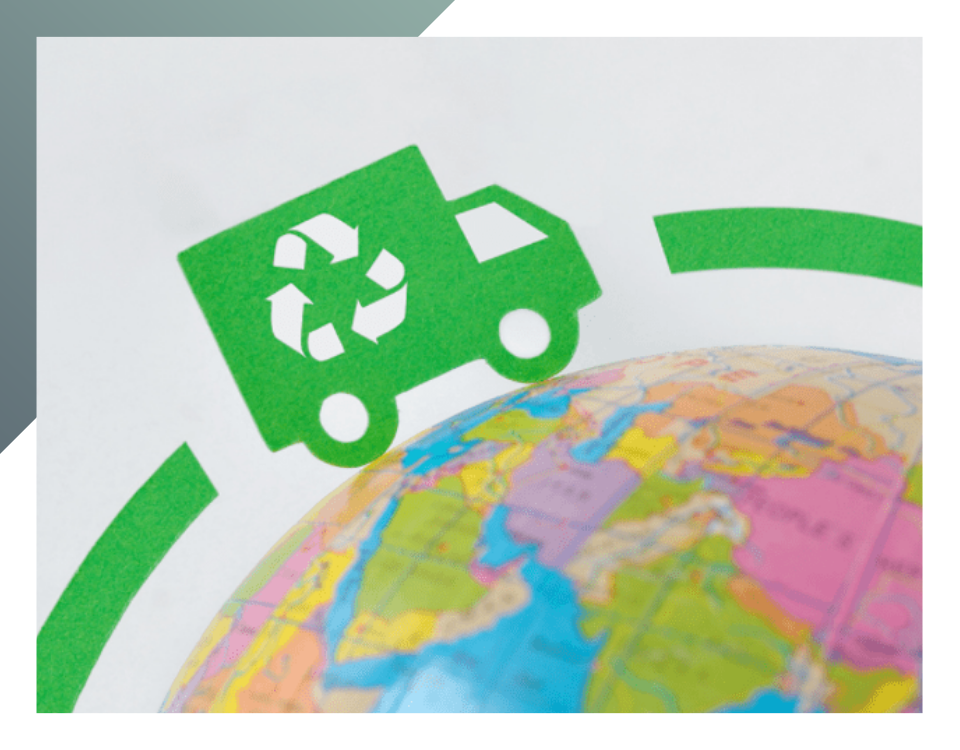Before buying a product, consumers look at the label not only to read its components, but also to understand how much a company or brand embraces the ethical values of sustainability. Packaging also conveys this information through logos, symbols and labels that attest to sustainability certifications. In the pharmaceutical sector, it’s possible to place the logos for FSC CoC and PEFC CoC certifications on the cartons, which demonstrate responsible sourcing of cellulose and wood derivatives. This is the first way to support and share environmental preservation projects through packaging: less impact on the planet, reduction of emissions, materials used and non-biodegradable waste. Numerous international organisations issue these certifications, mandatory and voluntary, which it’s useful to communicate to consumers to increase their trust in the brand and its values.
Sustainable Packaging: the requirements
In the packaging sector, the European Union imposes, through some regulations, that companies must adopt sustainable production. Specifically, member states must verify that the packaging placed on the market meets some standards specified by regulations published by CEN and the European Commission:
- limiting the volume of packaging as much as possible in order not to create surpluses and, at the same time, guarantee hygiene and safety;
- reusability and recycling of packaging whenever possible;
- classification of packaging ideal for energy recovery;
- recovery of packaging for biodegradation and composting.
In addition to the environmental protection standards imposed by the EU legislator, there are some essential certifications to communicate with transparency information on the best practies that the company adopts towards a production oriented towards sustainability. Let’s see some.
The Environmental Product Declaration EPD
The Environmental Product Declaration (EPD) is a document drawn up voluntary basis that describes the environmental impacts and performances during the production phase and enables them to be communicated transparently to the consumer. For example, it declares how much energy or water was consumed and how much was emitted into the atmosphere or water. This declaration must refer to a Life Cycle Assessment (LCA) study, an analytical methodology that evaluates a product’s life cycle and its environmental impact. In the case of packaging, the analysis is conducted on suppliers until the end of the production process, up to delivery. Among the measurement criteria is a packaging design section, which should be oriented to using sustainable materials and not excessive materials and their disposal. Accredited and independent organisations such as Bureau Veritas can verify the compliance of the Product Declaration Document (EPD).
PEFC and FSC certifications
The FSC (Forest Stewardship Council) is a non-profit organisation founded in the early 1990s during a United Nations Conference on Sustainable Development. The FSC certificate enables a company to demonstrate that it operates in an environmentally, economically and socially responsible way towards the world’s forests. In the case of packaging, specific standards are applied to all stages of production: procurement of wood and its derivatives, processing, printing, production and logistics. These standards assess whether the organisation is part of a responsible forest management system. Similarly to FSC, PEFC (Programme for Endorsement of Forest Certification) is a non-profit organisation that promotes sustainable forest management. While FSC is a standard that defines performance levels applied internationally to those who decide to adopt this scheme, PEFC works together to approve national strategy in the assessment of forest management and chain of custody and thus recognise the certification of these systems as long as they are oriented towards sustainability and respect for forests.
How to obtain FSC and PEFC certifications
To be able to affix the FSC and PEFC logos on packaging, it’s necessary to obtain Forest Management certification issued by the organisations, which declares respect for the health of the forest heritage from which the raw materials come at every planning and operational stage. From the planning of the interventions (where and how to acquire the wood) to the actual felling of trees, up to the social responsibility towards the local populations. It is also necessary to obtain the Chain of Custody Declaration (COC), which ensures the traceability of materials and the security that they come from sustainable forests.
ISO 14000 standards
The ISO 14000 standards refer to good practices for safeguarding the environment, providing tools and criteria for measuring the environmental performance of production cycles to improve performance in this area. Companies, brands and organisations that choose to adopt these requirements do so voluntarily, without any legal obligation, and to communicate their ethical values and respect for the environment to their stakeholders. Among the many standards, we mention the most important: UNI EN ISO 14001:2015, which specifies the requirements for an Environmental Management System. This scheme makes it possible to identify and assess the environmental impact and related opportunities for improvement.
Eurpack’s certifications: always in favour of sustainability
Eurpack promotes the value of sustainability, demonstrated by the fact that it has acquired many certifications aimed at reducing, as much as possible, the environmental impact of its production cycles. It holds the UNI EN ISO 14001:2015 requirements for the Environmental Management System and ISO 14064-1:2018, which quantifies greenhouse gas emissions and thus improves Carbon Management policies. Our ISO 14067:2018 certification (Product Carbon Footprint) attests that the materials used by Eurpack are derived from forest that comply with FSC and PEFC standards. Eurpack only uses energy produced by renewable sources and holds the Guarantee of Origin Certification according to EC Directive 2009/28. Furthermore, Eurpack is among the 5% of Top Gold companies recognised by EcoVadis and its suppliers for achieving sustainability targets according to international standards. Lastly, Eurpack supports “The Treedom project” with the creation of its forest: Packwood. With this initiative, the company participates in reforestation projects in different forest areas of the Earth and the livelihood of local populations in Africa and South America.
How can we help you?
If you would like to learn more about our commitment to sustainability or have any questions about our projects and initiatives, we are here to provide you with all the information you need.



